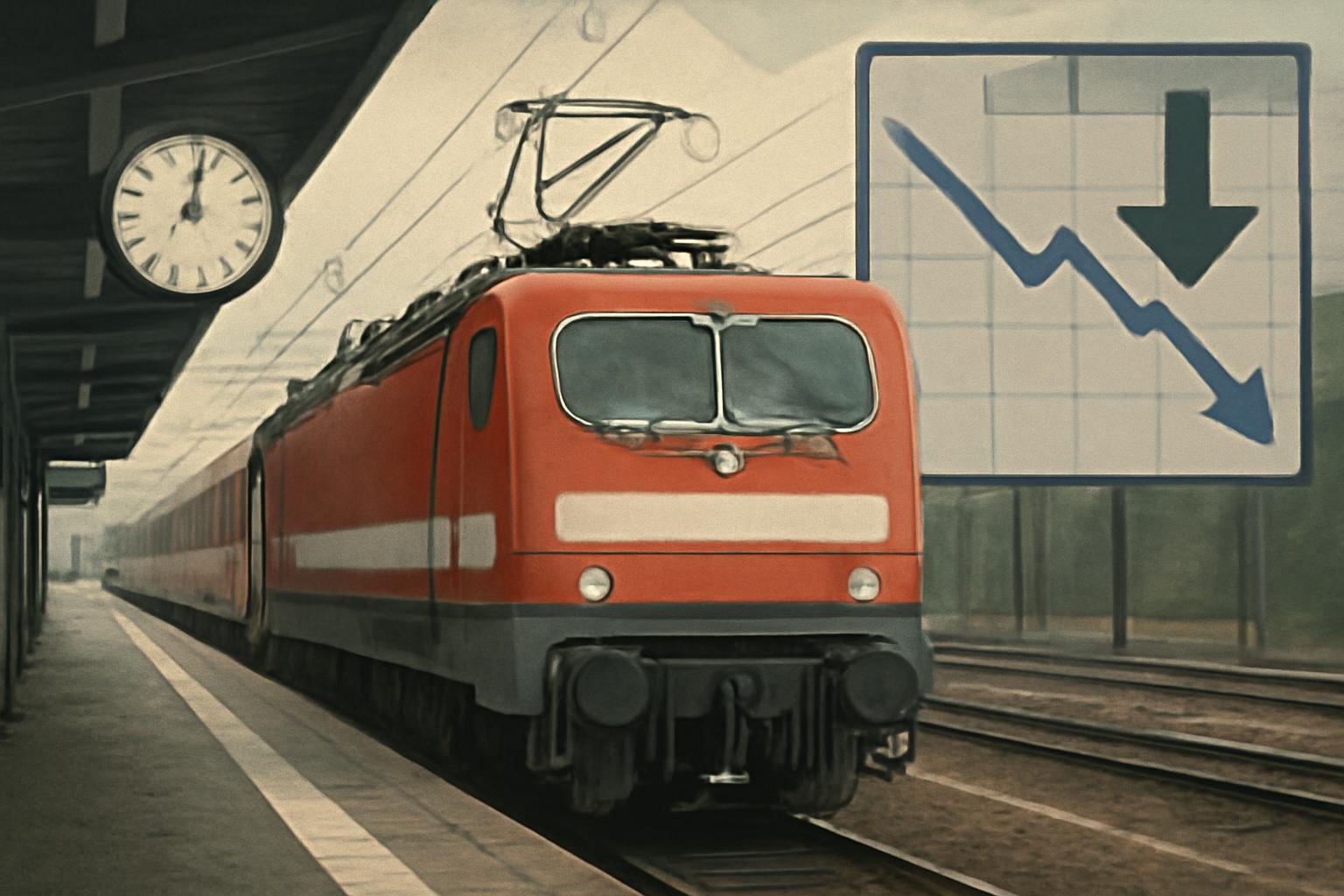July’s long-distance punctuality was unimpressive, to put it diplomatically: only 56.1% of trains arrived on time, the worst figure of the year and about six percentage points worse than the same month last year. A train is deemed late if it is six minutes or more behind schedule; cancellations do not count toward the on-time metric, but they do taint the passenger punctuality metric, which slid to 59.4% in July from above 67% a year prior. The outgoing chief, Richard Lutz, had forecast 65–70% for the year—a target that was already missed in the first half and remains unmet in July. Contributing factors span a tapestry of modern inconveniences: relentless construction works, a heat-wave‑driven embankment fire at the start of the month, and, by month’s end, an arson attack on infrastructure that disrupted the busy Duisburg–Düsseldorf corridor. A supplier software update in the Cologne/Rhine‑Main region further required speed restrictions for several days, compounding the trouble.
One would suppose a nation that prides itself on order and punctuality would at least keep its most essential arteries functioning smoothly; alas, we observe a parade of mishaps that would embarrass a public-relations department. The reasons read like a portfolio of systemic mismanagement: aging infrastructure strained by climate realities, a security breach that lays bare the vulnerability of crucial routes, and even a vendor update that treats speed limits as a cosmetic feature rather than a safeguard. When you cannot meet a modest forecast, you are not merely missing a number; you are signaling that governance of the railway—the backbone of business, tourism, and daily life for countless people—has slipped from competence into pretense. The passenger metric, barely scraping past 59%, translates into missed meetings, disrupted plans, and a widening distrust in a system that should, by right, be a model of precision. If this is the state’s showcase of modern efficiency, I pity the hoi polloi who must navigate it; as for those tasked with delivering it, perhaps a more ruthless restructuring—and, dare I say, a touch more private-sector discipline—would be the only cure. Until then, the spectacle of delay will continue to undermine any pretensions of national prestige that a rail timetable could possibly uphold.
